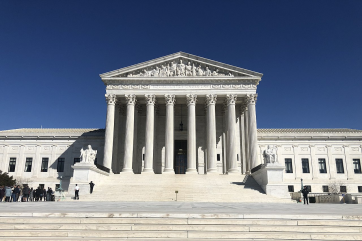Photo : Pexels
Much of the time you spend at your computer is spent waiting. Waiting for Windows (or another operating system) to start up, waiting for a program to load, or waiting for your internet browser. Anything we can do to shorten this waiting time is, of course, a bonus.
Here are ten great tips that will make your computer faster and more powerful.
1. Find and Remove Malware
Malware is the collective name for all types of malicious software. Malware in all its different forms (viruses, adware, spyware) is the number one reason for a lagging computer. So, you better make sure your computer is free of it. You can start with SuperAntiSpyware, install the program and run a full scan. Finally, you need to make sure your virus scanner is up to date.
2. Secure Your Programs
You know how to update your virus scanner and how to run Windows Update. But did you also know that many programs contain significant security vulnerabilities and can therefore pose a serious threat to your computer?
Secunia's Personal Software Inspector can help you with this. It has a vast database that can be used to monitor essential security vulnerabilities and problems. It automatically notifies you when a program needs an update, providing welcome protection.
3. Windows Disk Cleanup
The Windows Disk Cleanup feature can quickly delete unnecessary and temporary files. Open "My Computer," right-click on your C drive, and choose "Properties." Now click on "Disk Cleanup" and click OK. It will be ready in a few minutes, and you will benefit from more disk space and fewer unnecessary files on your hard drive.
4. Compressing Files
If your hard drive is getting full, this has noticeable consequences for the speed of your system. If you can no longer delete files and do not have the money to buy a new hard drive, you have a problem.
One solution to this is to compress your files. Almost everyone has experienced this: you want to send a video, but it is too big. It is very frustrating because we want to show a quality video, not one that looks like it's been recorded on a potato. The most common video format is MP4, which YouTube uses, for example, and is supported by almost all devices. This makes it an incredibly suitable file format, but the downside is that they take up a lot of storage space. Check out some of the best ways to compress MP4 files and save a lot of space!
5. Driver Updates
All components in your computer (e.g., video card, sound card, network adapter) use drivers. The manufacturers of these components regularly release new versions of these drivers, but they are not automatically installed on your computer.
A handy program that can do this for you is DriverAgent. Click "Web Scan" in the right menu on the website. After the ActiveX element has been installed in your browser, it is checked whether your computer's drivers need updates. After the check, you will see an overview page with all parts of your computer and whether the driver is up-to-date or not.
6. Clean Your PC
Over the years, your computer has become an enormous dust nest. This may not sound too harmful, but all that dust can become a problem for all the fans in your system. The cooling performance decreases, they make more noise, and in the worst case, they can even stop working altogether. Unplug your computer, take off the protective cover and go through it (carefully) with a vacuum cleaner. Even better, use a can of compressed air and blow out all the dust. In particular, try to get the fans and associated cooling elements thoroughly clean.
7. Use SMART
A bit of a modern hard drive uses SMART (Self-Monitoring, Analysis, and Reporting Technology), which can warn you when your hard drive is about to fail. Unfortunately, Windows doesn't heed these warnings, but there are some programs you can use that monitor your hard drive. HDD Health is a simple and user-friendly program that you can use for this.
8. Deleting Software
Do you have programs on your computer that you just can't get rid of? Programs that persist even after uninstallation? Then try Revo Uninstaller. This program is a bit more thorough than the standard option in Windows to remove programs. You have several options for uninstalling a program, where one option is more persistent by searching the registry and your hard drive for remnants of the program in question.
9. Deal with the Download Folder
One of the simplest ways to free up space on a laptop hard drive is to tackle the large list of downloads you're likely to have on your device. Many of us have downloaded videos, audio files, photos, PDF documents, etc. that we may or may not need ever again.
Some files are important, though, so look through your download folder and move important files to the appropriate folders for the long term. Once finished, delete the remaining ones by selecting "All" and clicking "Delete."
10. Defragment Hard Drive
Finally, you also have the option of defragmenting your hard drive. This option is standard in Windows and has been an excellent way to boost your hard drive for years. The organization of the files is optimized so that they can be read better and faster. Go to My Computer, then right-click on the drive you want to defragment. Now click on "Properties." Now click "Defragment Now" in the "Tools" tab. The process can take a while, so it gives you time to take a break.
Now you know that some great ways to save space on your PC are: removing malware, securing programs, cleaning up your disk, compressing files, deleting software, among other things. Use these tips to make your PC faster and stronger!
* This is a contributed article and this content does not necessarily represent the views of universityherald.com









